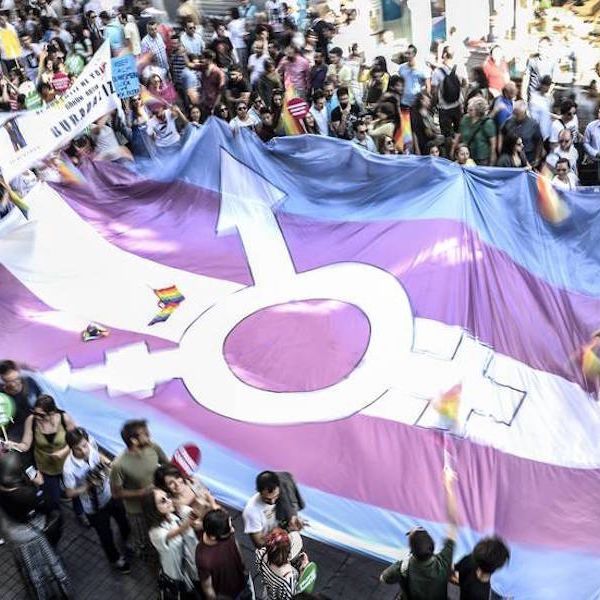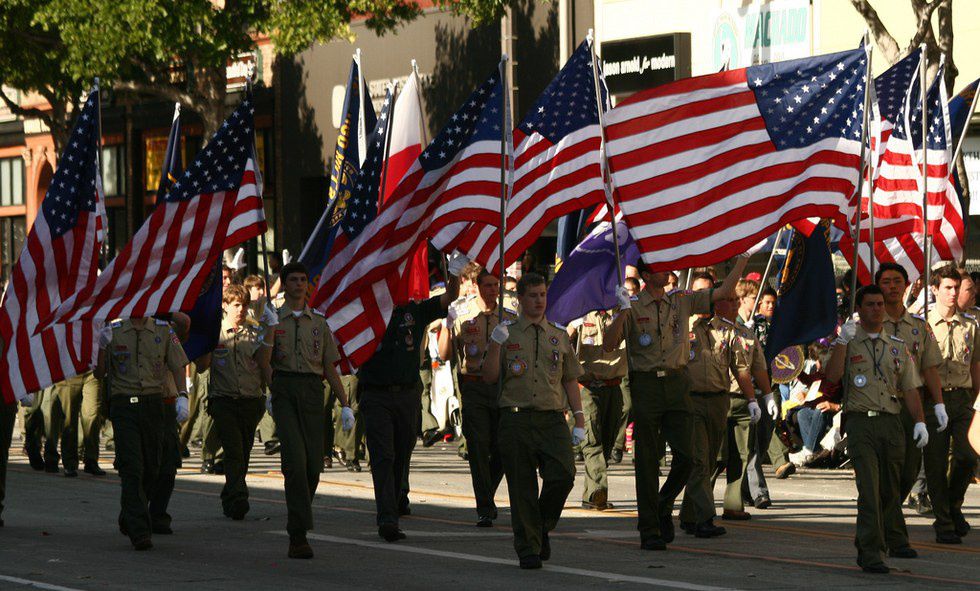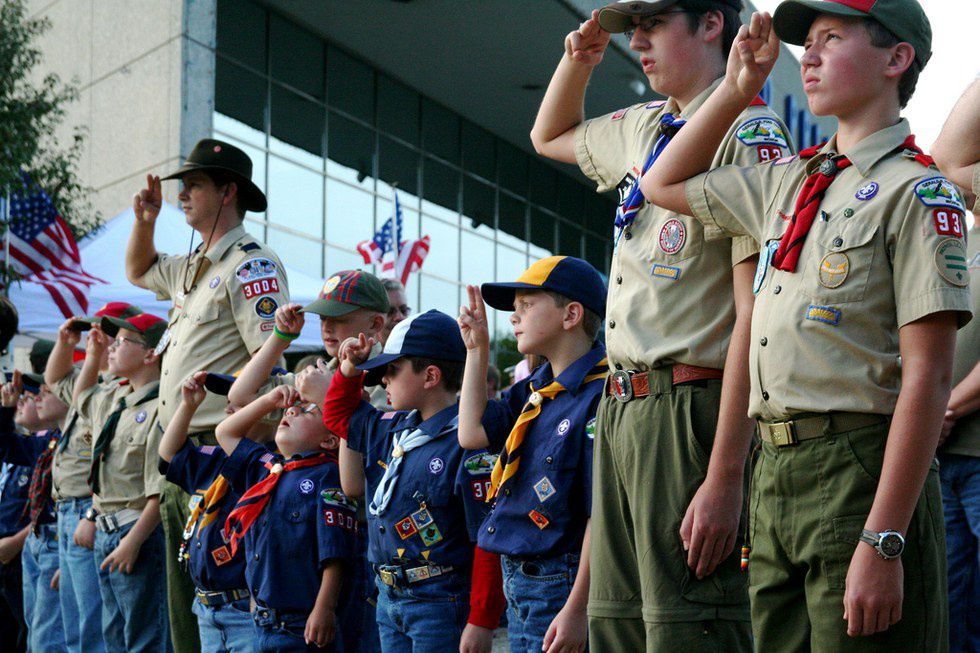The Boy Scouts of America announced Monday that it will allow transgender children who identify as male to enroll in its male-only programs, as reported by the Associated Press. This is an undeniable win for the trans community and its supporters, but it is also just another example of the Boy Scouts of America's long practice of exclusion.
Since its creation in 1910, the Boy Scouts of America has undoubtedly had one of the worst track records when it comes to inclusion. The first black troop arrived quickly in 1911, but it faced opposition immediately and, while the number of black troops steadily increased over time, they still dealt with discrimination.
For instance, in Richmond, Virginia, boy scout officials once threatened to stage a public burning of their uniforms if black boys were allowed to wear them. It wasn't until 1974, after over sixty years of segregation and ten years after the Civil Rights Act of 1964, that the southern BSA councils began to integrate troops.
A 1978 position statement that was signed by the then president of the BSA stated: "We do not believe that homosexuality and leadership in Scouting are appropriate.”
In 1991, the BSA went forward with a ban on openly gay scouts and leaders because it felt, "homosexuality went against the part of the Scout Oath that mandates members be morally straight.” This ban was upheld by the Supreme Court in the Boy Scouts of America v. Dale case (2000), which ruled that, because the BSA is a private organization, it is allowed to decide who can and cannot be a member due to freedom of association.
Over two decades later, in 2014, the Boy Scouts of America overturned their ban on gay scouts. A year and a half later, they overturned their ban on gay troop leaders and employees in 2015.
I was a cub scout briefly in elementary school and then a boy scout in middle school. I remember very little from my time as a scout besides an enjoyable week at Camp Powhatan and a hilarious ski trip to West Virginia.
As a member of the LGBTQ+ community, I am happy to see yet another organization come out with newfound understanding and acceptance of the trans community, but, as a former boy scout aware of its past, I know that the organization has a long way to go, especially in comparison to other organizations like the Girl Scouts of the USA, which has actively taken strides to remain accepting and inclusive.
It shouldn't take decades for the BSA to accept and include a group of Americans and, once it doesn't take as long, the organization will be able to truly stand by its claim of helping build a "more conscientious, responsible and productive society."























